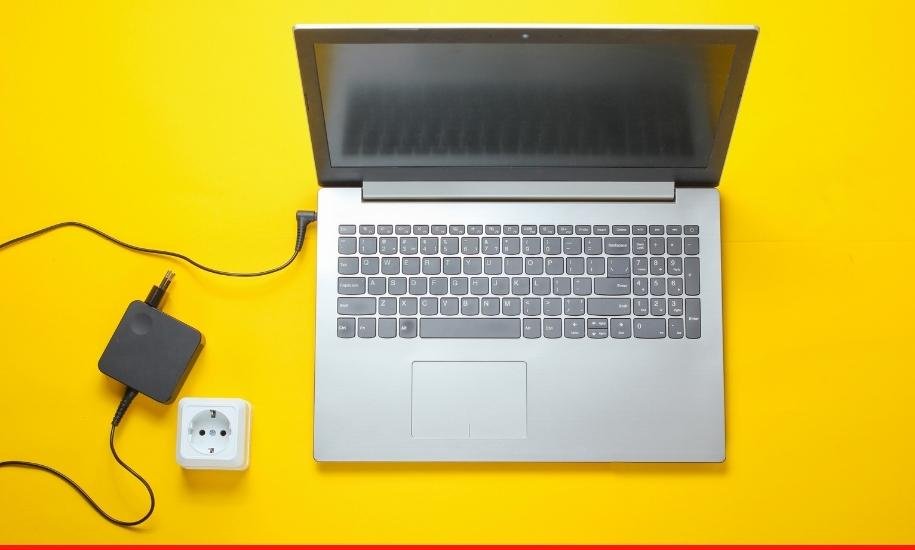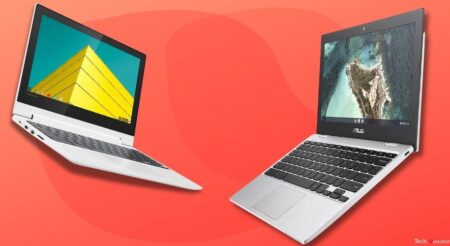
Generally speaking, if we do notice things around us, electronic gadgets are everywhere. We are so dependent on gadgets now that most of our daily work cannot be done without engaging electronic gadgets in them.
After smartphones, laptops are the second most important electronic devices we always need all the time.
No doubt, laptops assist us to do work effectively and save a lot of our time. No matter, whether an office worker or a student, everybody needs a laptop in order to do work and assignments they have been given.
Almost nobody here can imagine their lives without such electronic gadgets as smartphones and mobile, specifically laptops.
Despite buying an expensive laptop, everything goes well until one problem arises. Yes, you got it right. It is about the battery life of our laptops.
As you have observed, mainly the laptops are of smaller sizes and consume less electricity and time to charge the laptop.
As quick as the battery charges, the speed of consumption coordinates as per the usage. Therefore, we end up with no other choice but to charge our laptops over and over again.
Have you ever wondered how many watts does it take to charge a laptop? No? Then this article is an ultimate guide for you to get Know-how about the referenced topic.
Table of Contents
How Many Watts Does A Laptop Take to Charge?
It’s not a sheer fact that as compared to PCs, laptops take less power of electricity to charge themselves and they actually charge in less time to run for a day long.
Once, it is 100% charged, it would surely work for more than 24 hours. An estimated value of power in watts that are used to charge a laptop is somewhere between 50 to 70 watts and 60 watts to 90 watts and a point to note here is the type of charger you use.
An interesting fact here for you to know is that not all the battery is consumed by the laptop itself. An average of 30% of the battery is wasted in the heat emission and excess radiation which directly means that the laptop only uses 70% of the total charge.
Related Article: Can I Use A 90 Watt Charger On A 65 Watt Laptop?
If we talk about the time a battery runs then it’s totally dependent on the type and quality of the battery that is being used. A cheap quality will consume quickly and work for a short time, whereas a good quality battery will last longer.
Along with the type, size, and power, the size of the display also matters in this regard. If the hardware of your laptop is bigger, an increased amount of power would be needed to charge it thoroughly.
Most probably, bigger hardware needs approximately 140 to 180 watts of power to let the device charge fully as well as effectively.
Other than display size, the brightness of the screen also matters, the brighter the screen is, more the power it consumes.
Factors Influencing The Laptop’s Power Consumption
Though the laptops are made with the idea to work on the go and generally have the feature of portability so that they can be carried anytime and anywhere we want intending to continue working.
However, a few things require excess power and more consumption of electricity as a means to function effectively.
Before we fix anything up, what we need to learn is to know about the causes of the issue and with that purpose in this article, we are going to cover the multiple factors influencing the power consumption of the laptop and making the consumption go super-fast withier even any major use.
1. Size of the laptop’s display
The bigger the display, the more energy it takes. Though, such laptops have bigger chargers than normal.
Still, the time to charge will increase and that’s why the size of the display actually matters. You need to understand that your battery is consumed earlier just because of the display of the laptop you have.
2. CPU’s Performance
The amount of energy the laptop consumes is, directly and indirectly, related to the performance of your laptop’s CPU.
It has a major impact on battery usage. When we use heavy programs, the CPU needs to work harder and no doubt needs more energy than normal just like the rule of nature.
3. Size of the RAM
The size of the RAMs actually matters when it comes to energy consumption. The larger RAM will take a lot of energy from the laptop and result in quick battery consumption.
4. Types and Quantity of Hard drives
It’s a general fact that hard drives consume more energy than the CPU as a processor. Better quality and heavy hard drives take more power via laptops due to which laptops need to get more energy to work properly.
5. Presence of Graphic Card
It can be commonly understood by an average man that if the Graphic cards are present in the laptop, it will need extra energy to run. Other than ordinary graphic cards, the heavy and latest graphic cards additionally consume more energy, and such installation also affects the charging time too.
6. Features of Touchpad
With the technological advancements, laptops now have exceptionally feature introduced in them. One of them is the touchpad. Touchpad assuredly uses the energy of the laptop and the rest you all are aware of.
7. WLAN Module
WI-FI cards which are installed separately in the laptops also use the laptop’s energy and the laptops turn out to use more battery to manage required energy consumption.
8. Usage of Peripheral Devices
Connecting peripheral devices to your laptop is also another factor that’s affecting your battery consumption because all the connected devices will use the energy produced by the laptop and the laptop has the energy from the battery. Thus, using such devices indirectly means more consumption.
Tips To Follow To Avoid Quick Battery Drainage
Being very conscious of our readers’ concerns, here are some tips mentioned below that have proven to be highly effective and useful to avoid quick battery drainage. The less the battery drains, the less will be needed to charge. The tips are as follows;
- Low Brightness: the brighter screen consumes more energy and produces more heat. If you start using your laptop on low brightness, it will surely help your battery to run longer.
- Turn on Battery Saver: in case you have an easy battery drainage issue, try using the battery saver. For that just turn on the battery saver of the laptop and save your battery.
- Turn Off Bluetooth: make sure your laptop’s Bluetooth is perfectly turned off. Keeping the Bluetooth on, let the device consumes more energy. Consequently, the battery drains earlier.
- Turn Off WI-FI: another tip for your to save your battery from unnecessary consumption, turn off the WI-FI if not being used. This will help your laptop to get less load and work for longer effectively.
- Charge before the battery dies: it is always better to do things before it’s too late. The same is the case with the laptop’s battery. If the constant use of the laptop emptied the battery, the battery will need more energy to charge and the battery wouldn’t be able to work much accurately as it should be. For proper function, ensure to charge your battery before it dies. This is unquestionably the most important tip to follow among all.
- One task at a time: working on multiple tasks at a time means opening and using multiple programs together is another cause of your laptop’s battery draining quickly. Avoid using numerous programs on a single time.
Final Verdict
In this article, we have entirely covered all the aspects that influence your battery’s power consumption and its performance along with a few effective tips for you to follow in case you are facing the issue mentioned herewith.
It is exactly not known, how many watts does it takes to charge your laptop as different laptops have different specifications but the rough idea is mentioned above.
Besides looking for the watts for charging your laptop, you should be more concerned about how to save battery and avoid battery drainage.
This automatically resolves your issue related to the battery. Try and resolve your issue by understanding and following the aforementioned and let us know if you find this writing helpful.





